
The Chef’s Code: Knowledge and Understanding
-
A chef’s hands may shape the dish, but it is knowledge and understanding that shape the chef.
Knowledge gives direction to skill, and understanding gives it meaning.
In this video, we’ll explore why asking “why” is the mark of a true chef, how knowledge shapes every decision in the kitchen, and why lifelong learning is the heart of culinary mastery. -
-
In every kitchen I’ve worked in—from my first days at a sushi school in Tokyo to the long nights in real restaurants—one truth has become clear:
skill alone will not carry you.What separates a cook from a true chef is knowledge—and, more importantly, the depth of understanding behind it.
Knowledge turns confusion into clarity.
Understanding turns technique into wisdom. -
But neither comes overnight. They are built through curiosity, reflection, and the courage to ask why—again and again.
This chapter begins with a simple conviction:
“To become a true chef is to keep learning, not just what to do, but why we do it.”
If even one idea here helps you pause, reflect, and grow, then this chapter has served its purpose. -
1. A Chef Who Can Answer “Why” Is a Strong Chef
“Why do we cut it this way?”
“Why is this the right step right now?”Asking yourself these small questions day after day may seem simple, but over three, five, or ten years, it creates a huge difference.
You can remain a task-doer—someone who just follows orders.
Or you can become a thinking chef, someone who questions, understands, and evolves with every action.In the world of cooking, every step has a reason.
Those who understand the “why” behind each movement, and can explain it in their own words, become the ones with depth, flexibility, and faster growth. -

Depth of understanding is what elevates the quality of your cooking.
The more experience you gain, the more you’ll realize the power of asking “why.”
Because it is that constant questioning that leads you toward becoming a chef with both confidence and credibility. -
2. Knowledge Elevates the Quality of Everything
Flavor, presentation, timing—knowledge influences every aspect of cooking.
Understanding ingredients, mastering the science of cooking techniques, recognizing how temperature and humidity affect your results—even choosing the right plate or knowing proper storage—turns “I don’t know why this isn’t working” into “Here’s how I can fix it.”In short, knowledge expands your toolbox and gives you versatility as a chef.
-

Many of the problems that arise in the kitchen come from a lack of understanding.
But when you carry the right knowledge, you can make calm, confident decisions and maintain consistent quality in your work.It’s not just about gaining experience.
Staying curious and committed to learning is what will elevate both your cooking and your career. -
3. Respect the Seasons—Never Overlook What’s in Season
In Japanese culinary culture, “shun” refers to the moment when an ingredient is at its absolute best—its peak flavor, texture, and vitality.
And that moment is always tied to the natural rhythm of the four seasons.Spring brings softness, summer offers boldness, autumn carries richness, and winter delivers depth.
Seasonal ingredients capture not only flavors, but also the atmosphere and story of each season—and they bring that story to the plate. -

No matter how skilled a chef may be, ignoring seasonality leaves a dish feeling hollow.
That’s why a true chef must learn to sense the seasons, respect what’s in season, and express it through their cooking.To honor seasonal ingredients is to cook in harmony with nature—
the simplest, most beautiful way to connect with your guests on a deeper level. -
4. Make an Effort to Leave Profit for the Restaurant
While honing your skills as a chef is of course essential, your responsibility as a professional goes beyond that.
To support the restaurant and ensure its long-term success, generating profit is also a crucial mission.Minimizing food waste, working efficiently, and maximizing the value of every dish served—
these efforts add up to profit for the restaurant and create a better working environment for the entire team.Being mindful of profit does not mean prioritizing profit over customers, but rather laying the foundation for a sustainable business.
-

When each chef strives to contribute to the restaurant’s profitability, it ultimately leads to greater customer satisfaction and trust.
-
5. People Forget — Take Notes Immediately
No matter how good your memory is, people tend to forget information over time.
Especially in the kitchen, where remembering details, techniques, and cooking tips is crucial, if you don’t make a habit of taking notes, what you’ve learned can easily slip away.Taking notes is not just about recording information; it is an essential tool to steadily build your knowledge and skills.
-

By writing down what you learn and observe right away, and reviewing it later, you deepen your understanding and accelerate your growth.
If you want to grow as a chef, it is vital to accept that forgetting is inevitable and develop the habit of taking notes immediately.
-
6. Don’t Become Arrogant — There Are Still Mountains of Unknown Dishes
No matter how much experience you gain or how much your skills improve, never fall into the trap of thinking you know everything.
The world of cooking is vast and profound, with countless dishes and techniques yet to be discovered. -

Having confidence is important, but never forget the value of humility and the continuous desire to learn.
Becoming arrogant dulls your ability to absorb new knowledge and causes you to miss opportunities for growth.If you want to succeed as a chef, it is essential to acknowledge what you don’t know and maintain a mindset of lifelong learning.
-
7. The Plate is the Kimono of the Dish
Cooking is not just about taste; appearance and atmosphere are equally important elements.
The plate acts like a “kimono” that enhances the dish, playing a crucial role in expressing the full appeal of the food.No matter how delicious the dish is, if the plate doesn’t match, its value diminishes significantly.
Choosing the right plate according to the season and theme of the dish, and aiming for harmony between them, is a true chef’s skill. -
Through the plate, you can convey the chef’s vision and passion to those who enjoy the meal.
"A chef’s hands may shape the dish, but it is knowledge and understanding that shape the chef."
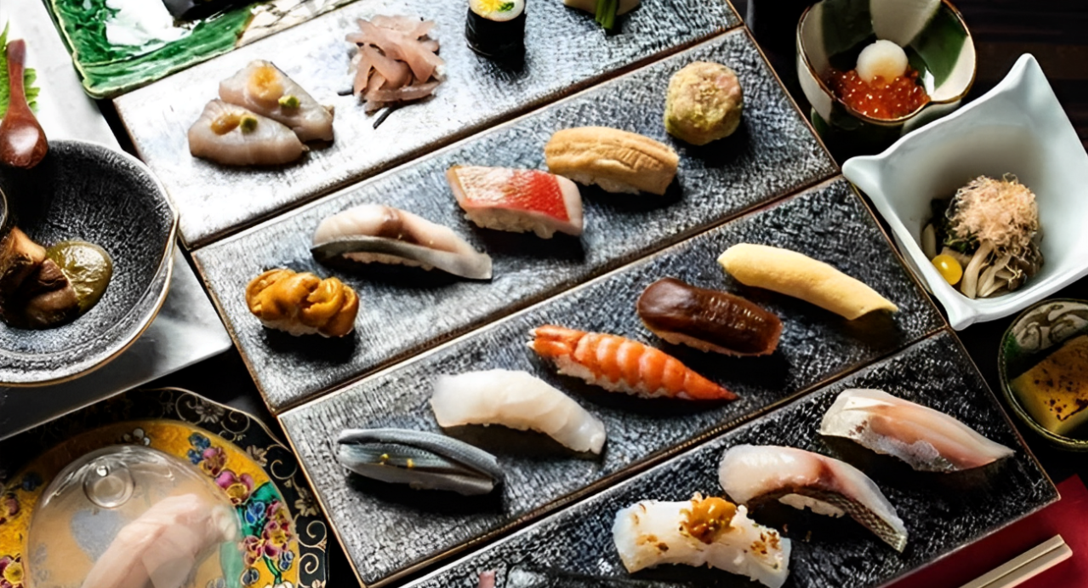
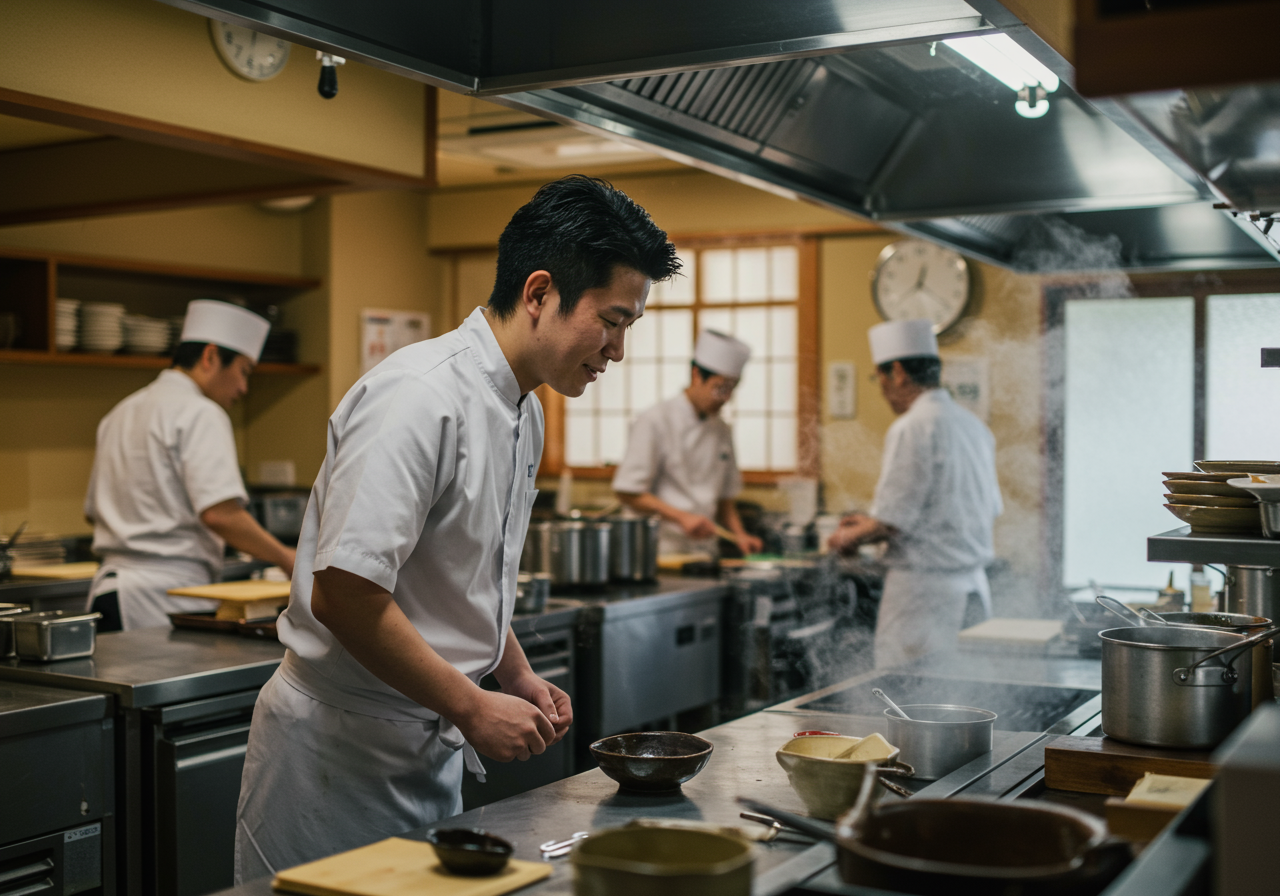
Character and Attitude
This chapter centers on one guiding belief:
“Before you can be a great chef, you must first be someone others naturally respect.”
Here, I explore the essential qualities that come before skill—like integrity, emotional control, humility, and the power of your words.
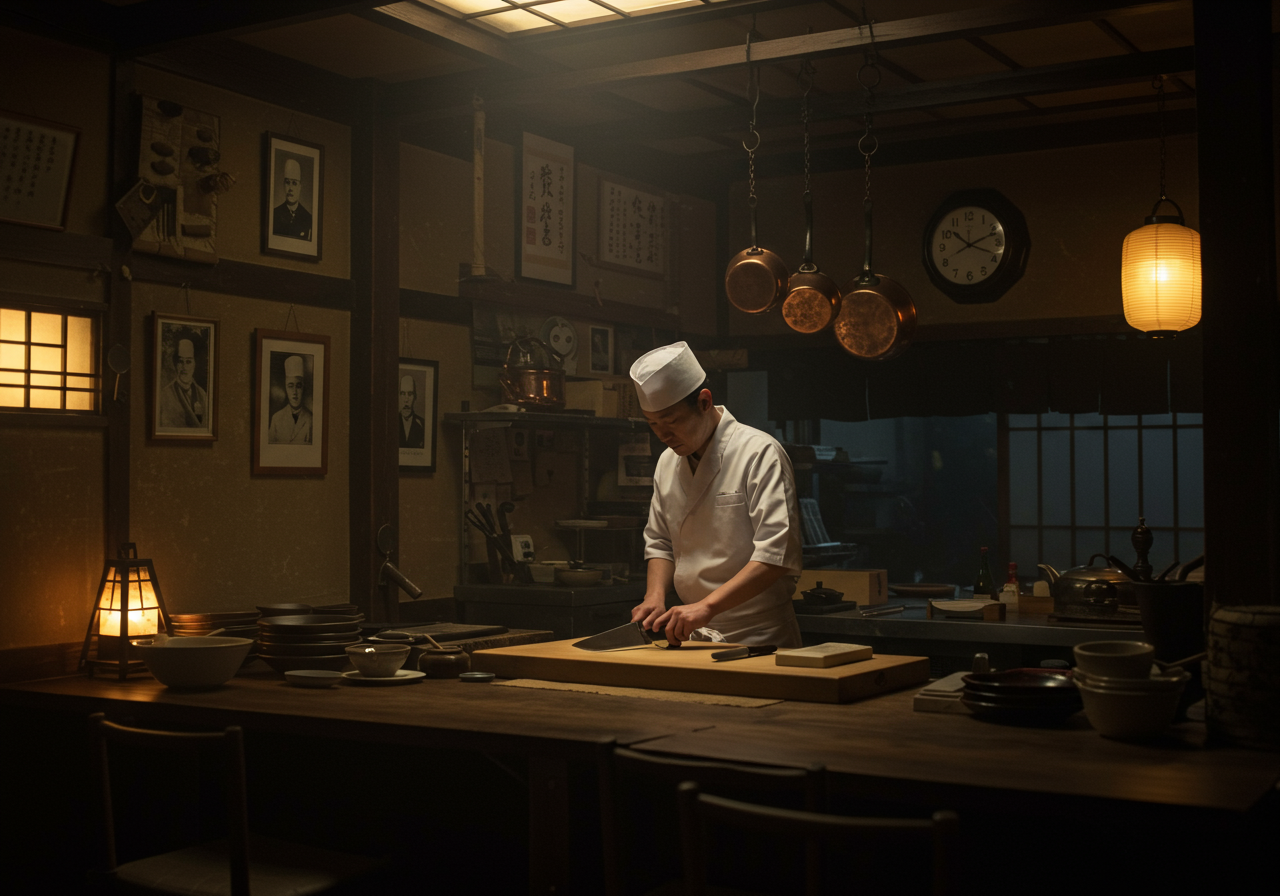
Skill and the Attitude Toward Mastery
In this chapter, we dive into how to develop and refine your technical ability as a chef—from the fundamentals of katsuramuki and tsuma-uchi, to the importance of planning, preparation, and proper whetstone care.
It’s not just about how to move your hands—it’s about how to build a mindset that respects every step of the craft.
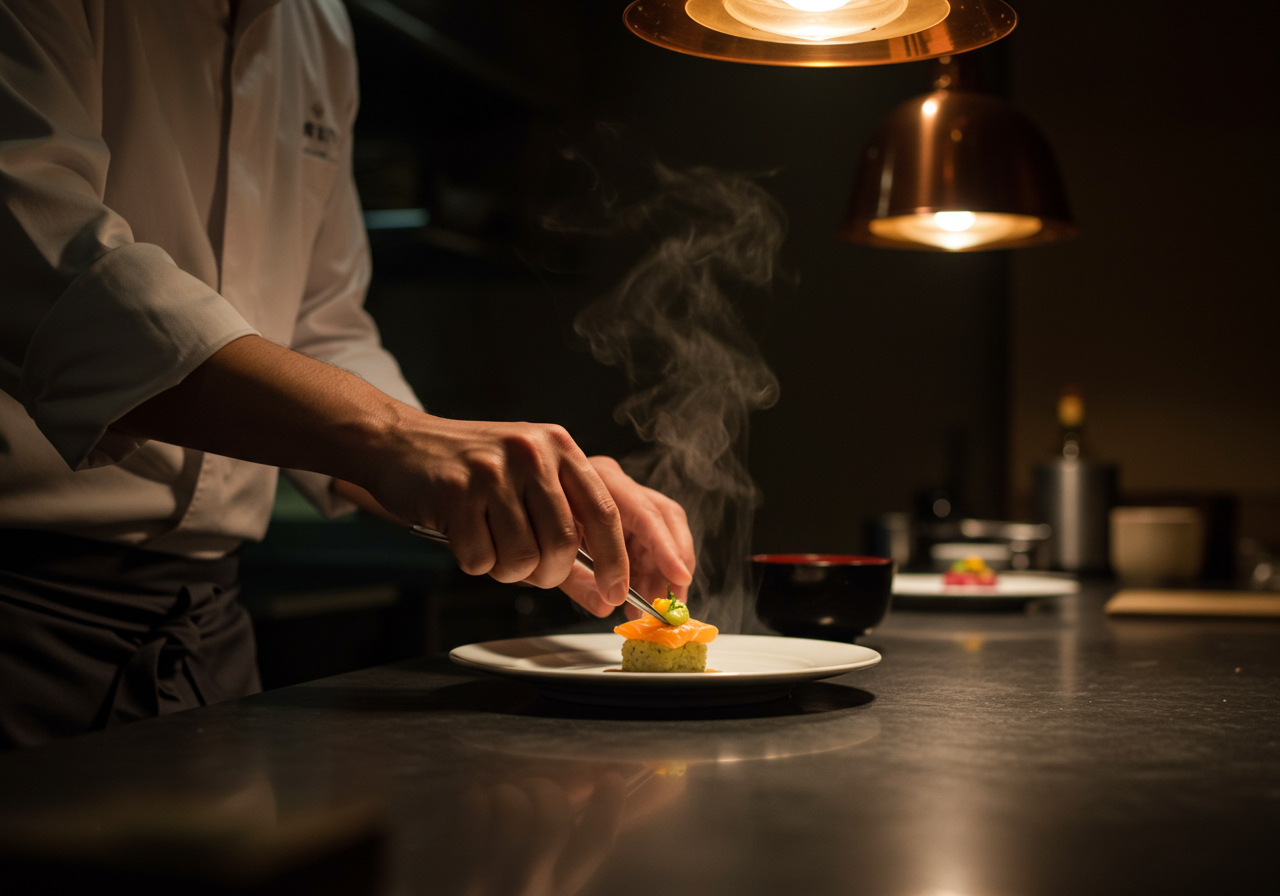
Devotion to Flavor and the Five Senses
This chapter explores the art of sharpening your senses, valuing even humble staff meals, mastering balance, respecting quality ingredients,
and the deeper essence of what it means to create dishes that truly delight.
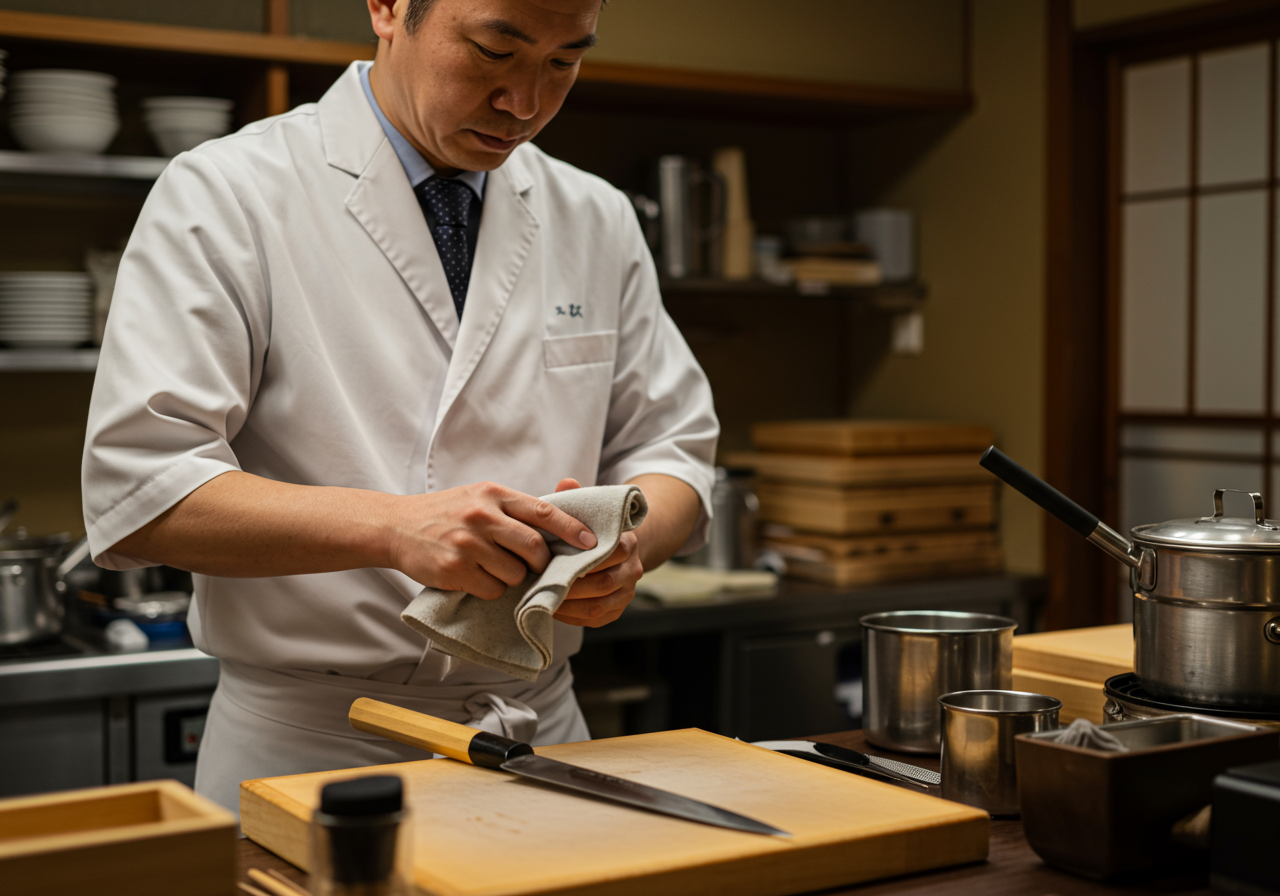
Professionalism and Daily Practice
This chapter explores how these daily attitudes and habits are indispensable for living as a top-level chef.
No matter how small the task, every action matters.
Our Story
-
Tradition of Sakai, in Your Hands
"Where can I find a truly great knife?"
We started KIREAJI to answer that question. While the number of skilled craftsmen is declining in Japan, many people overseas are seeking authentic blades. With that in mind, we carefully deliver each knife—bridging tradition and kitchens around the world. -






